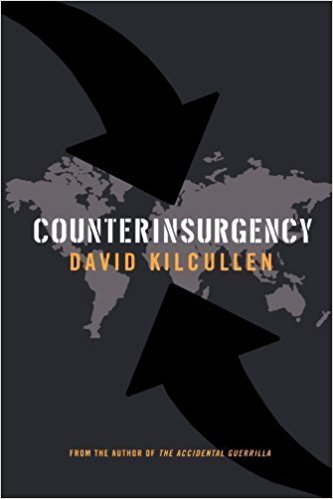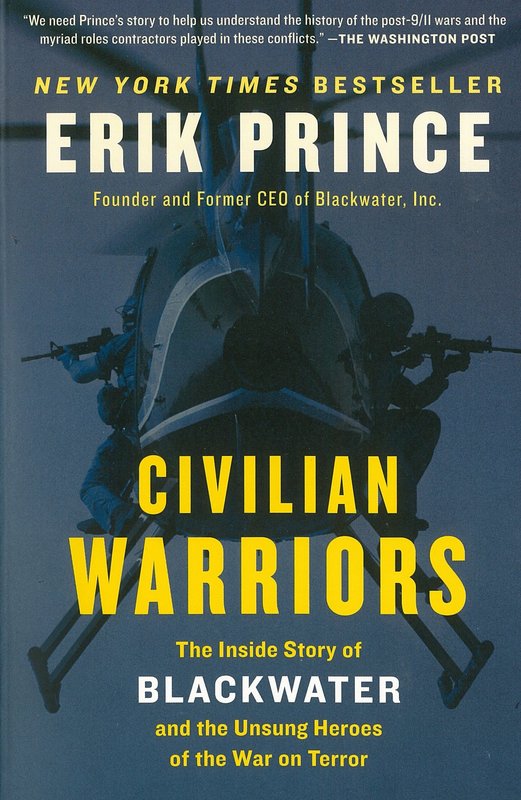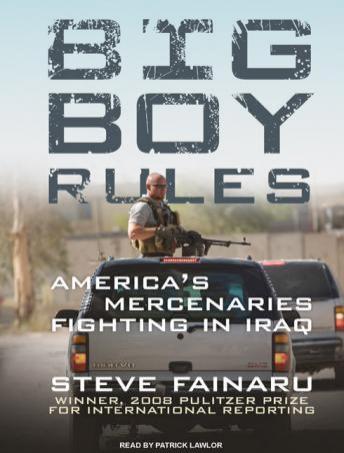|
Counterinsurgency
by David Kilcullen Published in May 2010 272 Pages Thibault’s Score: 3/5 This book was written by David Kilcullen, former advisor to General David Petraeus and one of the masterminds behind the Surge. He is widely regarded as one of the world’s top counter terrorism experts. Throughout the book, he draws heavily on his own various personal experiences. His book is written as a guide for counter-terrorist professionals - he writes a lot in the second person, giving direct advice to the reader about various counter terrorism topics. The book gave me insights into the minds of counter terrorism officials, and the types of metrics that they use to determine success. I found the chapter where Kilcullen explains his international incident on the border with Indonesia where his troops had an extended shootout with the Indonesians to be very interesting. The conclusion of the book couldn’t be more dull or cliche. The last chapter concludes that counterterrorism experts need to focus on innovation and non military solutions. Overall, this book didn’t greatly impact or shape my way of thinking about terrorism, but it was by no means a difficult or unpleasant read.
1 Comment
Inside the Jihad: My Life with Al Qaeda
by Omar Nasiri Published in January 2008 357 Pages Thibault’s Score: 4/5 Inside the Jihad is a heart pounding page turner. It is bullshit free, and a educationally valuable. Omar Nasir was a Moroccan and Belgian arms dealer who got caught selling massive quantities of firearms and ammunition to Al Qaeda. In a desperate attempt to avoid prison, he instead decides to become an informant, and spends the next few years infiltrating the world’s most dangerous terrorist network. The book is very well written. The writing steal is clear and simple. No words are wasted, and every chapter advances the central narrative. I constantly found myself wondering what would happen next and how Omar would deal with his increasingly impossible challenges. At one point, Omar is crossing the border from Spain into Morocco with a car full of explosives. The following moments where Omar deals with the border guards is palpitating and tense. There were many very memorable moments like this. This book also helped me understand the reasons why someone might join Al Qaeda and devote their lives to fighting the Jihad. As a political extremist myself, I strongly emphasized with the intense feelings experienced by the terrorists, and could see how, if my life had turned out differently, I might find myself ending up in a similar situation. I have doubts about the authenticity of all of the events described in the book, but nevertheless learned a lot about radical Islam. This book has changed my perspective on Islam more than anything that I’ve read in a long time, and I now can see the incredible kinship, friendship, and family that Jihad provides. I strongly recommend this book to anyone trying to understand Islamic terrorism Civilian Warriors: The Inside Story of Blackwater and the Unsung Heroes of the War on terror
by Erik Prince Published in 2013 416 Pages Thibault’s Score: 3/5 The author, Erik Prince, is the CEO of America’s largest private security contractor / mercenary company that did business during the Iraq war. He is also a former Navy SEAL. He came under fire by the media, and eventually quit Blackwater, disbanding his company and pursuing other ventures. He has remained a very controversial figure sense. Some view him as a merchant of blood, eager to grab some dollars from the government and enrich himself at the misery of others. Others see him as a man who used the private sector to provide a high quality service at a low cost. When I saw him speak at various events and do interviews, I realized he was a deeply intelligent man with a very good explanation of what he does (despite his use of Bush-era newspeak). As part of my attempts to understand the modern state, I decided to naturally turn to his book. The book’s casual writing style was a bit off-putting to me. I was expecting the book’s target audience to be policy wonks, not football watching red state voters. I also think that the book was ghostwritten. Instead, the book focuses on Erik Prince’s fascinating personal story. I enjoyed hearing about how he grew his business. Many parts of the book made me feel very skeptical of Erik Prince’s story. For example, his appeal to his grandfather’s humble origins and his remarks about his dying wife appear as if they are designed to appeal to the emotionality of the readers. I also found it suspect that there are no criticisms of the war in Iraq or its motives. Erik Prince likely witnesses incredible amounts of corruption during his time in the war, and it would have been great if he would have exposed the corruption. That being said, Prince makes a strong case for private militaries. He gives many examples where he contrasts the efficiency of Blackwater with the slow bureaucracy of the army. For example, there was a shootout where some Coalition personnel was under heavy fire. The Coalition forces didn’t send in any support due to the risks involved. Instead, Prince authorized Blackwater to send in helicopters which rescued the trapped personnel. Reactions in the army were mixed: many officials were glad that Blackwater had saved their allies, but others were furious to discover that a group like Blackwater had grown so powerful. Civilian Warriors is a powerful critique of the fiscally inefficient American war machine, and an excellent defense of the free enterprise system. Ultimately, however, it is also a propaganda book written by the least objective player in the space. I recommend Civilian Warriors to people who are interested in either private security or Blackwater. Big Boy Rules: America’s Mercenaries Fighting in Iraq
by Steve Fainaru Published in November 2008 288 Pages Thibault’s Score: 3/5 Anti-war journalist Steve Fainaru spent several months following the lives of Iraq’s mercenaries, and the struggles they face. While his book is very critical of the private security industry, he does a good job at capturing the lives and struggles of the men fighting in Iraq for money. The writing style was clear, but the author jumps around a lot, making the chronology occasionally hard to follow. What I disliked the most was totally irrelevant information about the author’s Own life struggles that seem irrelevant and detract from the central narrative. The writing was clear and simple, just as it should be. I found the contents of the book to be very interesting. The description of the security industry and the lives of the men that the journalist followed are fascinating, and I learned a lot about the industry. The author recounts the stories of many mercenaries. Many of the stories strike me as too outrageous to be true, and are probably embellished. For example a contractor, protesting over his pay, supposedly pulls out a knife and sticks it into his employer’s desk. Or another contractor makes it sound like they would enter villages and shoot at literally everything then leave. Many of the claims seems like they have been cherrypicked and taken out of context. This book has many suspenseful moments, such as when a contractors vehicle was approached by what appeared to be an Iraqi border guard. The Iraqi guard got close to the car, then attempted to shoot the contractor with an AK47. Nervous from the beginning, the contractor hit the gas pedal, and escaped. Had he been a few seconds later, he would have been killed. Eventually, the contractors are taken prisoner by the fake guards. I also was shocked at the contrast between Kuwait and Iraq. The contractors get frequent weekends in Kuwait, where they spend their money in the air conditioned and civilized city state. The next day they commute back to Iraq where they undertake extremely dangerous missions. This book neither stands out as good or bad. It was an enjoyable, short, and simple read, but nothing special - I didn’t get any fundamental perspective bending insights. The English and Their History
by Robert Tombs Published in November 2014 1024 Pages Thibault’s Score: 2/5 I did learn a lot from reading this book, but didn’t really enjoy reading it. Something about the writing style turned me off to the book, and after I reached the 19th century, I had to stop reading it. The most interesting part of any history, especially the history of an ethnocultural group, is its origins. Who are the British? Where do they come from? This book completely ignores that question, and focuses almost exclusively on modern English history. I was hoping to read this book as a following to the History of Roman Britain, but was sorely disappointed. Of the 1000 pages, the entire Celtic tribal period, Roman occupation of Britain, Anglo-Saxon invasion, Danish invasion, and Norman conquests cover maybe 50 pages. By contrast, the 19th and 20th centuries cover more than 400 pages. Because the scope of the book is so huge, I also found that it glosses over every major historical event - this is why I generally prefer more specific history books, which focus on an era or epoch. A proper history of the English would likely be Gibbon-esque is length and scope. The writing style walks a fine line between being too advanced for the layman, but too simple for the historian. As a result, it fails at being compelling to either group. There was virtually no explanation of the sources used or of the archeological findings, which is acceptable for books written for general consumption, but inaccessible for books intended for historians. I also didn’t like the blatant British nationalism expressed by the author - for example, he spends much ink trying to determine whether the French or British started a conflict 800 years ago. I felt like this history, especially as it got more modern, was written with a clear modern geopolitical agenda. Sentences are long and complex, with a focus on flourishes rather than simplicity and understandability. I do not recommend this book - it isn’t the worst book I’ve read, and readers will certainly learn a lot, but it isn’t by any means a “great read.” |
Thibault SerletMost of my articles are book reviews, but I also write about many other topics. Archives
December 2023
Categories |





 RSS Feed
RSS Feed